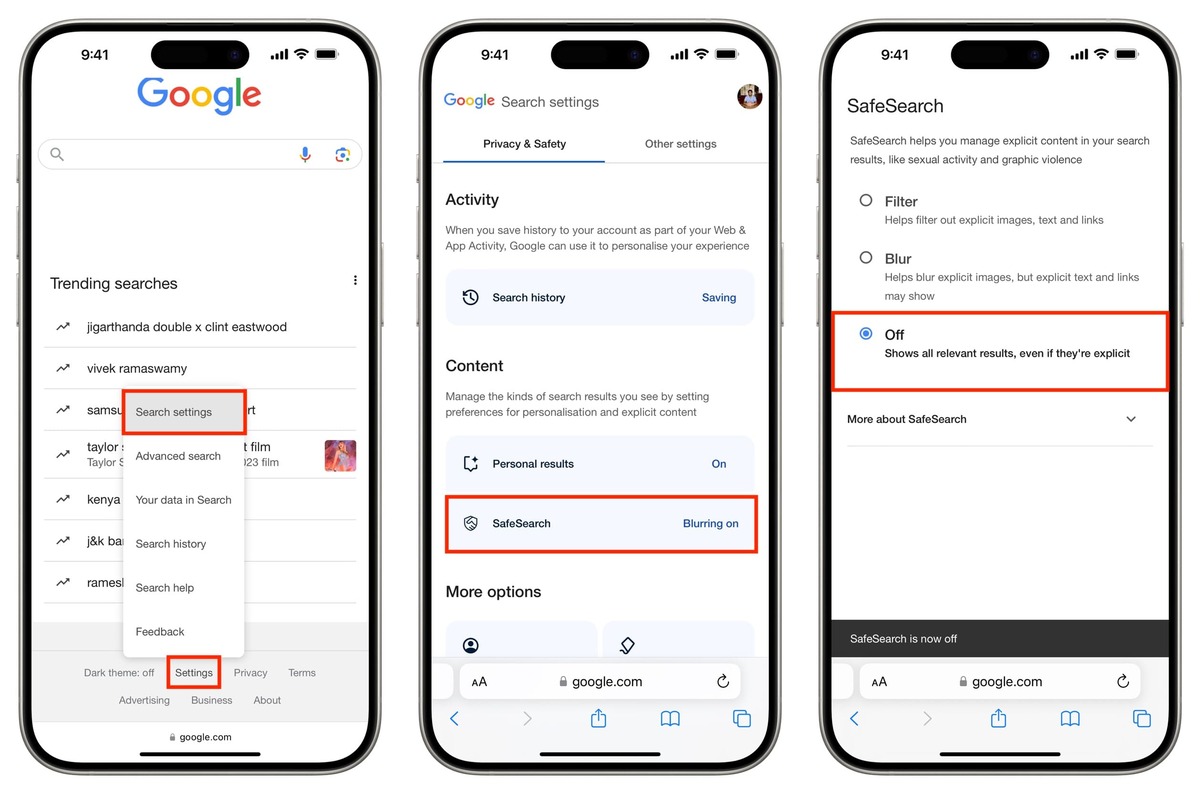Home>Health and Wellness>Expired Melatonin: Is It Safe To Take?


Health and Wellness
Expired Melatonin: Is It Safe To Take?
Modified: February 29, 2024
Learn about the safety of expired melatonin and its impact on your health and wellness. Find out if it's safe to take expired melatonin supplements.
(Many of the links in this article redirect to a specific reviewed product. Your purchase of these products through affiliate links helps to generate commission for Noodls.com, at no extra cost. Learn more)
Table of Contents
Introduction
When it comes to managing sleep issues, many individuals turn to melatonin as a natural solution. However, there is often confusion surrounding the shelf life of this popular supplement. The question of whether expired melatonin is safe to take is a common concern for those who have unused bottles tucked away in their medicine cabinets.
In this comprehensive guide, we will delve into the topic of expired melatonin, addressing the safety considerations and potential risks associated with consuming this supplement past its expiration date. Additionally, we will explore the proper storage methods for melatonin to ensure its efficacy and safety for consumption.
Understanding the implications of using expired melatonin is crucial for individuals who rely on this supplement to regulate their sleep patterns. By shedding light on this topic, we aim to provide clarity and guidance for those seeking to make informed decisions about their melatonin usage. So, let's embark on this insightful journey to uncover the truth about expired melatonin and its safety implications.
What is Melatonin?
Melatonin, often referred to as the "sleep hormone," is a naturally occurring hormone produced by the pineal gland in the brain. This hormone plays a pivotal role in regulating the body's internal clock, or circadian rhythm, which influences the sleep-wake cycle.
The production of melatonin is influenced by the body's exposure to light. When it's dark, the pineal gland increases its production of melatonin, signaling to the body that it's time to sleep. Conversely, exposure to light inhibits melatonin production, signaling wakefulness.
In addition to its role in sleep regulation, melatonin also possesses antioxidant properties, helping to combat oxidative stress and protect cells from damage. This dual functionality has led to the widespread use of melatonin as a dietary supplement to address sleep disturbances and support overall well-being.
Melatonin supplements are available in various forms, including tablets, capsules, and liquid formulations. Many individuals turn to melatonin as a natural remedy for occasional sleeplessness, jet lag, and shift work sleep disorders. Its ability to promote relaxation and support healthy sleep patterns has made it a popular choice for those seeking non-pharmaceutical interventions for sleep-related issues.
Given its pivotal role in regulating the sleep-wake cycle and its potential health benefits, melatonin has garnered significant attention as a natural sleep aid. However, it's essential to understand the implications of using expired melatonin and whether it poses any risks to one's health. This leads us to the crucial question: does melatonin expire, and is it safe to take expired melatonin? Let's explore this in the following sections.
Does Melatonin Expire?
Melatonin, like many other supplements and medications, does have an expiration date. The shelf life of melatonin can vary depending on the formulation, storage conditions, and the manufacturer's guidelines. Typically, melatonin supplements are labeled with an expiration date, indicating the date until which the product is expected to remain stable and effective.
The expiration date serves as a guide for consumers, signaling the point beyond which the manufacturer cannot guarantee the potency and safety of the product. It is important to note that the expiration date is determined based on the stability and efficacy of the active ingredients in the supplement. Over time, the potency of melatonin may diminish, potentially impacting its ability to deliver the desired sleep-regulating effects.
It's crucial for individuals using melatonin to be mindful of the expiration date and to avoid consuming the supplement once it has passed. While it may be tempting to continue using expired melatonin, doing so can pose potential risks to one's health and may lead to diminished efficacy.
In the next section, we will delve into the safety considerations and potential risks associated with consuming expired melatonin, shedding light on the importance of adhering to the expiration date for this popular sleep aid.
Is Expired Melatonin Safe to Take?
Consuming expired melatonin raises concerns about its safety and efficacy. While it may be tempting to use expired supplements, including melatonin, it's essential to prioritize safety and adhere to the expiration date indicated on the packaging. Expired melatonin may have undergone chemical changes, potentially leading to reduced potency and altered composition. As a result, the supplement may no longer deliver the intended sleep-regulating effects and could pose risks to one's health.
The potency of melatonin can diminish over time, especially beyond the expiration date. This reduction in potency may compromise its ability to effectively regulate the sleep-wake cycle, potentially leading to inadequate sleep support. Moreover, the altered composition of expired melatonin may introduce unknown variables, raising concerns about its safety for consumption.
In addition to the potential loss of efficacy, expired melatonin may also harbor microbial contamination or degradation byproducts, further compromising its safety. These factors underscore the importance of respecting the expiration date and refraining from using melatonin beyond this point.
It's crucial to prioritize safety and efficacy when it comes to melatonin supplementation. By adhering to the expiration date and avoiding the use of expired melatonin, individuals can mitigate potential risks and ensure that they are receiving the full benefits of this natural sleep aid.
In the following sections, we will explore the potential risks associated with consuming expired melatonin, shedding light on the importance of proper storage methods to maintain the potency and safety of this popular sleep supplement.
Risks of Taking Expired Melatonin
Consuming expired melatonin poses several potential risks to one's health and well-being. As with any expired supplement or medication, the safety and efficacy of expired melatonin may be compromised, leading to undesirable outcomes for those who choose to disregard the expiration date.
One of the primary risks associated with taking expired melatonin is the potential loss of potency. Over time, the active ingredients in melatonin supplements may degrade, resulting in a reduction of their sleep-regulating effects. This diminished potency can lead to inadequate support for the sleep-wake cycle, ultimately impacting the quality and duration of sleep. Individuals relying on melatonin to address sleep disturbances or regulate their circadian rhythm may find that expired melatonin fails to deliver the intended benefits, thereby exacerbating their sleep-related issues.
In addition to potency concerns, expired melatonin may undergo chemical changes that alter its composition. These changes can introduce unknown variables, potentially leading to adverse reactions or side effects upon consumption. The presence of degraded byproducts or impurities in expired melatonin raises safety concerns, as these substances may pose risks to one's health and well-being. Furthermore, the altered composition of expired melatonin may render it ineffective in delivering the desired sleep-supporting effects, leaving individuals without the anticipated relief from sleep-related challenges.
Moreover, expired melatonin may be susceptible to microbial contamination as it approaches and surpasses the expiration date. The presence of microorganisms in expired supplements can pose significant health risks, potentially leading to infections or other adverse effects upon consumption. Individuals using expired melatonin may unknowingly expose themselves to these microbial contaminants, jeopardizing their overall health and well-being.
By understanding and acknowledging these risks, individuals can make informed decisions regarding the use of melatonin supplements. Prioritizing safety and efficacy entails respecting the expiration date and refraining from consuming expired melatonin. Doing so can help mitigate the potential risks associated with using an expired supplement and ensure that individuals receive the intended benefits of melatonin supplementation.
In the subsequent section, we will explore the importance of proper storage methods for melatonin to maintain its potency and safety, providing valuable insights for individuals seeking to optimize the shelf life of this popular sleep aid.
How to Properly Store Melatonin
Proper storage of melatonin is essential for maintaining its potency and safety over time. By adhering to recommended storage practices, individuals can optimize the shelf life of their melatonin supplements and ensure that they retain their efficacy. Here are key guidelines for properly storing melatonin:
-
Protect from Light: Melatonin is sensitive to light, and prolonged exposure to light can degrade its potency. To safeguard the integrity of melatonin supplements, store them in a dark or opaque container, away from direct sunlight or sources of artificial light. Additionally, choosing a cool, dark storage location, such as a medicine cabinet or a drawer, can help shield the supplements from light exposure.
-
Maintain Stable Temperature: Fluctuations in temperature can impact the stability of melatonin. It is advisable to store melatonin supplements at a consistent, moderate temperature to prevent degradation. Avoid exposing the supplements to extreme heat or cold, and opt for storage areas with controlled temperatures, such as room temperature environments. Refrain from storing melatonin in locations prone to temperature extremes, such as near heating vents or in the refrigerator.
-
Ensure Proper Sealing: Properly sealing the container of melatonin supplements is crucial for preserving their integrity. Ensure that the packaging is tightly sealed to prevent exposure to air and moisture, which can compromise the quality of the supplements. Choosing airtight containers or resealable packaging can help maintain the stability of melatonin and protect it from environmental factors.
-
Follow Manufacturer's Instructions: Adhering to the manufacturer's storage recommendations is essential for preserving the quality of melatonin supplements. Some products may come with specific storage instructions, such as avoiding humidity or recommending refrigeration for extended shelf life. By following the guidelines provided by the manufacturer, individuals can optimize the storage conditions for their melatonin supplements.
By implementing these storage practices, individuals can prolong the shelf life and maintain the potency of their melatonin supplements, ensuring that they remain effective and safe for consumption. Prioritizing proper storage is integral to maximizing the benefits of melatonin supplementation and promoting overall well-being.
Conclusion
In conclusion, the question of whether expired melatonin is safe to take underscores the importance of understanding the implications of using supplements beyond their expiration date. Melatonin, renowned for its role in regulating the sleep-wake cycle and supporting overall well-being, is subject to degradation over time, raising concerns about its potency and safety when expired. The expiration date serves as a crucial indicator of the stability and efficacy of melatonin supplements, guiding consumers to make informed decisions regarding their usage.
The safety considerations surrounding expired melatonin are paramount, as the potential risks associated with consuming supplements beyond their expiration date can impact individuals' health and well-being. The loss of potency, altered composition, and susceptibility to microbial contamination pose significant concerns, highlighting the need to prioritize safety and efficacy when it comes to melatonin supplementation.
Proper storage practices play a pivotal role in maintaining the potency and safety of melatonin supplements. Shielding them from light exposure, maintaining stable temperatures, and ensuring proper sealing are essential steps to optimize their shelf life. By adhering to these guidelines, individuals can prolong the efficacy of their melatonin supplements and mitigate the risks associated with using expired products.
Ultimately, the decision to prioritize safety and efficacy by refraining from consuming expired melatonin aligns with the overarching goal of promoting well-being. By respecting the expiration date and implementing proper storage methods, individuals can optimize the benefits of melatonin supplementation and support their sleep-related needs effectively.
As we navigate the realm of natural sleep aids and dietary supplements, it is imperative to remain mindful of expiration dates and storage practices to safeguard the potency and safety of these products. By doing so, individuals can make informed choices that contribute to their overall health and vitality, ensuring that they receive the intended benefits of melatonin supplementation without compromising their well-being.
In essence, the journey to uncover the truth about expired melatonin and its safety implications underscores the significance of informed decision-making and proactive measures to prioritize safety and efficacy. By embracing these principles, individuals can navigate the realm of melatonin supplementation with confidence, knowing that they are optimizing their sleep support while upholding their health and well-being.














